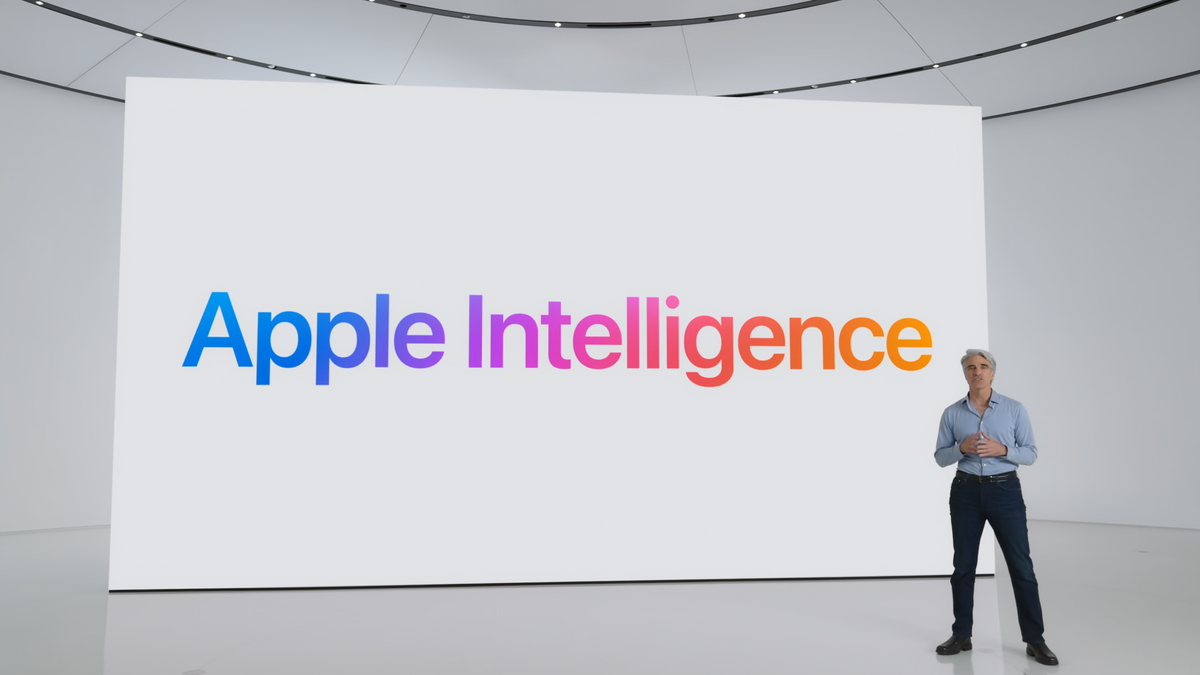I was grumpy after Google I/O last month. I thought, what is the point of all this artificial intelligence if it’s hurting my Android experience now? Then I caught myself excited over similar AI features Apple announced for the iPhone at WWDC.
I figured it resulted from being at Apple Park and enjoying a fluffy but crisp chocolate croissant at Cafe Mac. But as time passed at the developer conference and I became more familiar with what was coming down the pipeline, I recognized I’d adopted a certain acquiescence. I didn’t feel as resistant to the idea of Apple Intelligence as I did to AI sitting in the press box at Google I/O. The branding was better on Apple’s part. It’s less harrowing than Gemini’s forceful existence and a bit more inviting with its proposed user-friendliness.
iOS 18 won’t be out for several more months, and most of what Apple Intelligence can do won’t be live in the upcoming public beta. In fact, the AI features will only be available to a subset of Apple devices. Still, the way that Apple packaged it all convinced me that the way it’s transitioning to AI is neater and more organized than the way Google is doing it.
An engaging keynote
Apple did a good job centering its keynote around the features users will get once Apple Intelligence arrives later in the year without mentioning “AI” too much. Whereas Google used its keynote to justify its pivot, Apple barely touched upon the subject until the second hour. It felt less like a timeshare presentation, convincing me of what I could have if I gave in, and more like a state of the union explaining the changes that were going to come as a result of industry trends.
Apple spent some of the last half of its keynote time laying out the features of Apple Intelligence and what it would power up. It includes scrubbing background people and objects from a photo and generating an emoji based on a text prompt—all things that Android can do in most instances. But again, the way Apple presented them as quality-of-life enhancements to the operating system rather than brand new-fangled tech made AI feel approachable and even inviting in some cases.
The promise of contextual Siri
I have not been coping well with Google’s transition over to Gemini. I recently rolled back to the Google Assistant after some frustrating experiences with the current Gemini AI offering, despite the harrowing daily reminders that it’s on its way out. Google hasn’t been super straightforward with what the future looks like for smart home routines and other related capabilities after Gemini takes over. Until then, I only feel safe using Gemini on the web.
Meanwhile, Apple’s over here showing me what I used to envision with the Google Assistant. Contextual Siri will be available for iPhone later this year. The idea is for you to start a conversation with the traditional digital assistant. While the screen glows around the edges, you can continue in context with your voice or what you’re doing on the screen until you receive the desired result.
I have Nest Audio speakers peppered throughout my home because I envisioned a similar future with Google, where I would walk into each room, and a digital assistant would guide me. However, as the months have passed, particularly since Gemini’s launch, the Assistant’s ability to understand which device I’m commanding in a specific room is becoming more of a hassle than a helper. If you don’t believe me, check out the dozens of annoyed users on Reddit who have been struggling to enjoy Gemini’s fruits because it isn’t fully integrated into everything else the Google Assistant was meant to do.
In the end, it’s all AI
Over the well-tended garden wall, Apple Intelligence is moving full steam ahead despite some questions lingering around privacy and the data sets. The way Apple presents it, AI is a natural evolution of its software, and your role as a user gains you the privilege to experiment within the limits set forth.
Google has also tried to steer us all toward a narrative of experimentation, but it tends to translate to instability in the Android world. I wonder if I would feel less frustrated if I were entirely in on the Apple side of things. Some floating commentary about Apple Intelligence leads me to believe I’m one of the few who feels any optimism following WWDC. Either way, it doesn’t seem like much of a choice. Either you accept that the future of mobile is contingent on AI, or you try to be one of those people who are reverting to a “dumb phone” to maintain your sanity.

